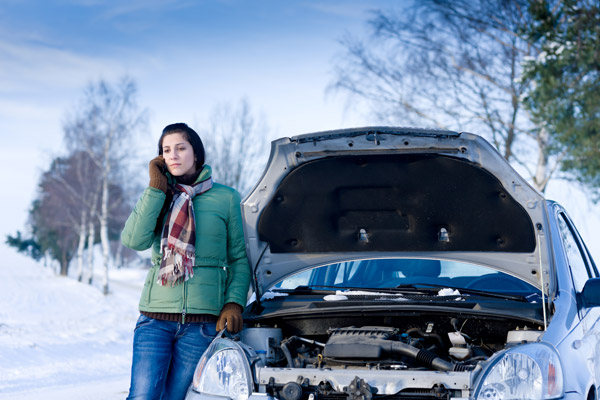Car Tips: Winter and Weak Engines
As far as engines are concerned, winter is a tough season for weak and small engines, especially stroke engines. Cold start-ups, clattering noises, missing current, smoke emissions and frozen locks are some common problems for car owners during the winter season. Here are some tips to get you through the winter season:
Prevention from Cold Start-up and Missing Current:
Cold start-up is the biggest problem that causes trouble due to cold weather. For cars running on CNG, the problem of cold start-up is even more intense. During winters, it may take up to 15 minutes to start a car on CNG. If you have a vehicle that runs on CNG, then never turn off your car’s engine on CNG at night, this can cause severe nuisance in the morning while starting your car’s engine. Before switching off your car at night in cold days always:
- Convert to petrol from CNG to avoid start-up problems in the morning.
- Once converted, let the engine running for a few minutes and do not turn it off at once.
- While starting in the morning, always remember that engines require a certain amount of heat to run smoothly. If you start you car and drive it away without warming its engine up, it may trouble your engine in the long run.
- Start your engine, let it warm up for few minutes before you drive it away. Driving without letting your engine generate heat can result in missing current.
Prevention from clattering noises and smoke emissions:
Engines, usually emit smoke on cold start-ups, which is quite normal. Smoke emissions for new 1300cc engines are normal as well. But the problem arises when the smoke emission goes abundant. You might sometimes notice plumes of smoke on cold-startup. This usually happens with weaker or small engines. To prevent plumes of smoke emissions on cold start-ups:
- Use smoke prevention oil solutions with 5w-40 or 10w-40 conventional or semi-synthetic oils.
- Avoid using mineral oils with synthetic oils.
- Drive on low rpm and do not accelerate your vehicle unnecessarily.
- Get your engine flushed on every alternate oil change.
Clattering noises is an indication of some trouble with your engine. Generally, clattering noises are caused by weak engine mounts, timing belt/chain problems, etc..
You might have noticed a difference in pickup speed, mileage and smoothness when you change fuel stations. Always try to get fuel from a reliable fuel station. Always use a mixture of hi-octane petrol with normal octane petrol. This will prevent some major vibrations in your engine and will also result in enhanced pick up speed, mileage and smoothness. Do not accelerate your car vigorously more than once if you hear any kind of clattering noises.
Many engines face a lot of problems during cold weather, which does not mean that there is a problem with your engine. Cold weather can have a great impact on the performance of your engine.


Ye kis bewaqoof ne article likha hai?
Ye kis bewaqoof ne article likha hai?
sirf 500 batorne ke lia bakwas likee ha incomplete article ha
I cannot agree with the fact that you have to warm up the engine before you start. It is machine , not a human which needs a warmup. In a technical term it is called idling a car so by idling a car you will only waste a fuel. It is better to start a car and drive a way, engine will get warm up by it self. The engine is made for running the car so it will warm up while the car is running, not actually when it is idling.
bro? like seriously? start the engine and start driving instantly cause u wana save fuel? is that u wana say? LMFAO 😛 technically there is a difference between idling and leting ur engine to get to the operating temperature..iam sure u know what operating temperature is right?
Everytime when you press the gas paddle you consume fuel ? so doesnot matter if the car is in gear or out of gear, if you press the paddle , you will burn certain amount of fuel. so idling the car will seriously burn the fuel and straight away driving a car after start will not cause any harm on engine. Oh yeah may be you are talking about that 1960 car where engine has to reach the temperature first and then you can actaully run it 😛 coool. prove what you said if not then i will post a proof …